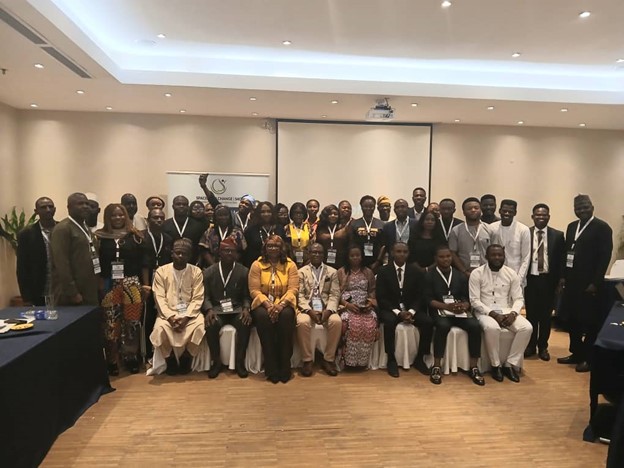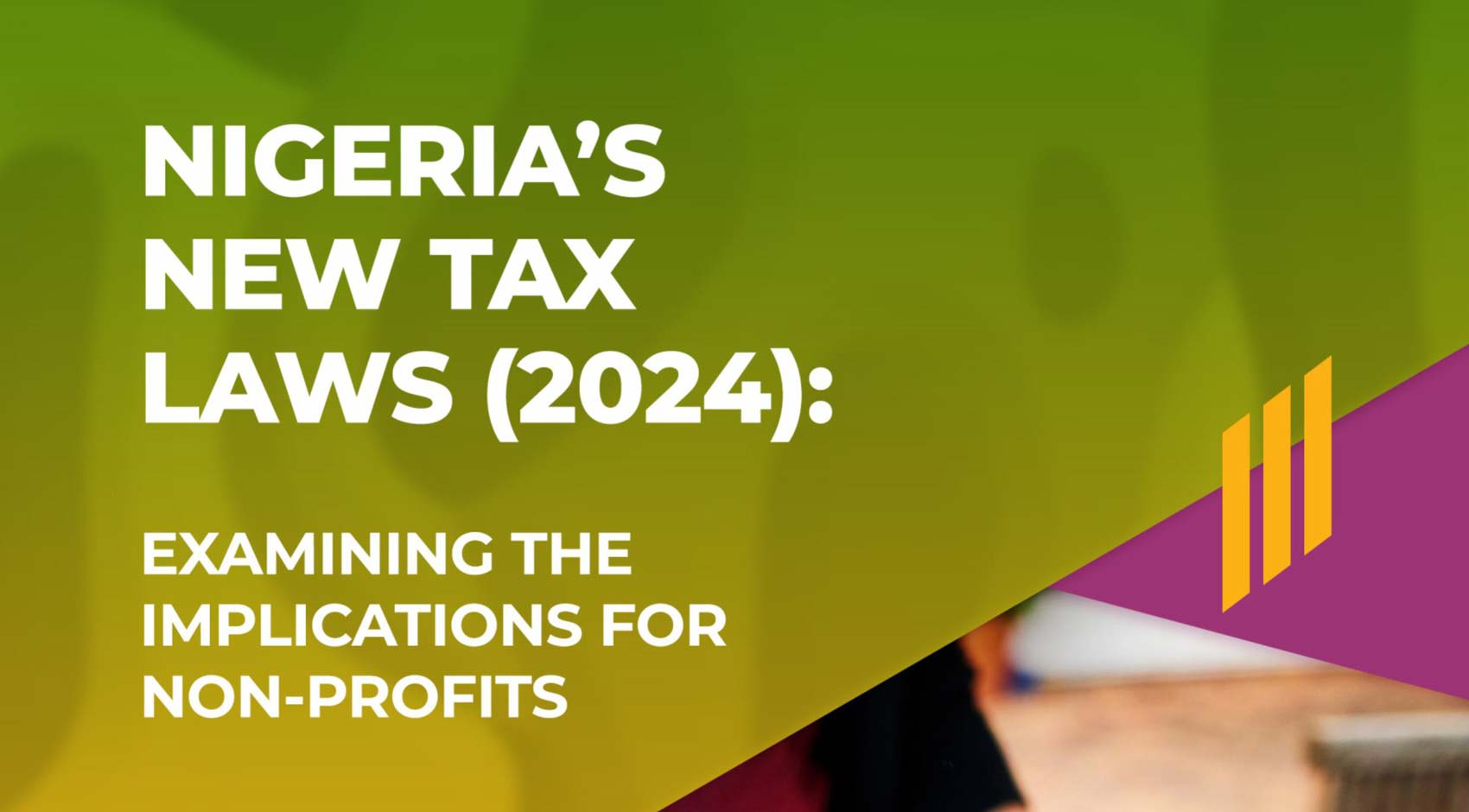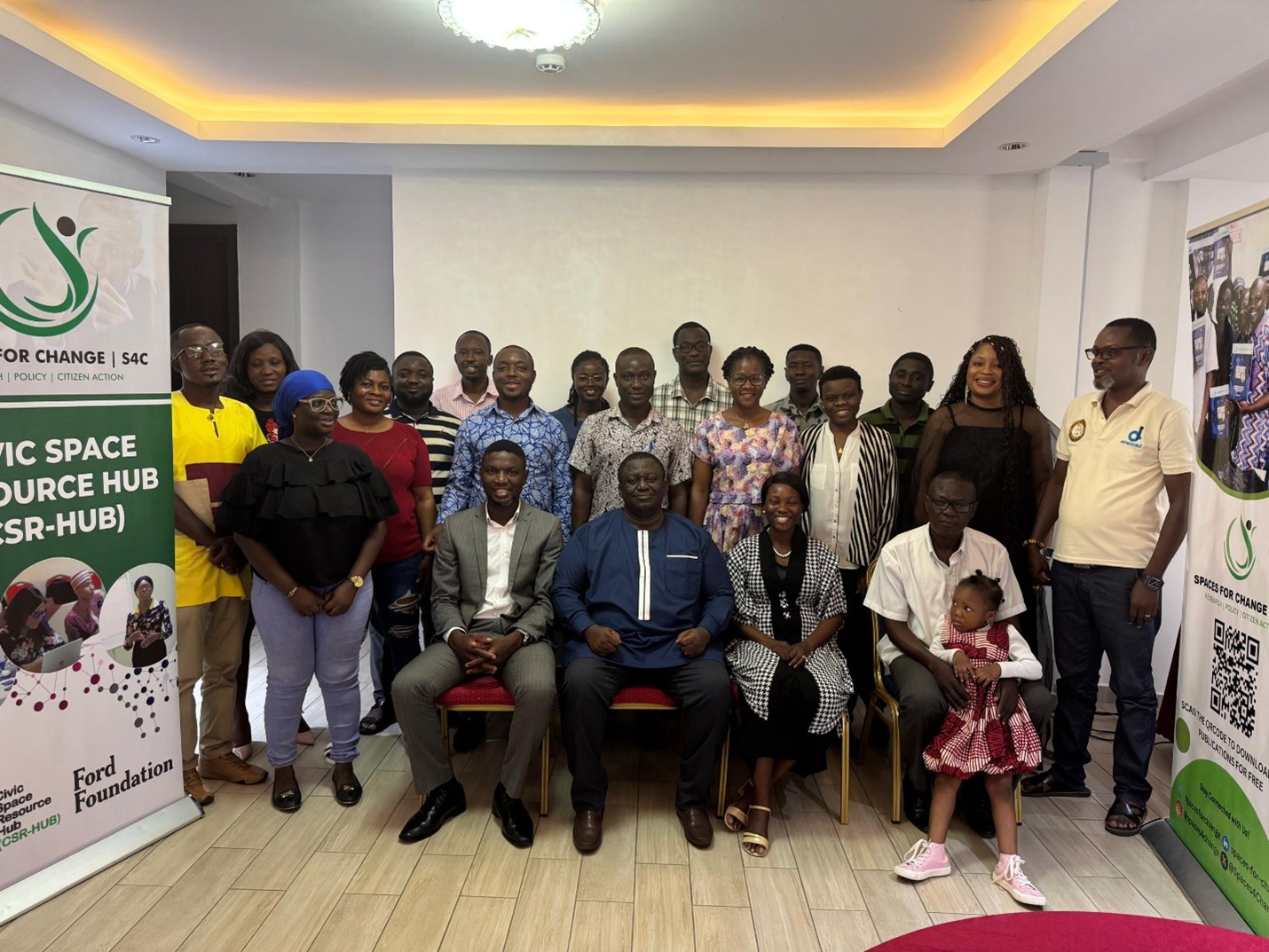
Spaces for Change | S4C organized a bilateral consultative meeting between non-profit organizations (NPOs) and financial institutions on October 4, 2024, in Lagos, Nigeria. Forty-one (41) executives of law enforcement agencies, regulators, banks and charities operating in Nigeria converged to mutually explore strategies for addressing financial exclusion, derisking of charitable organizations as well as other regulatory pressures arising from the implementation of countering the financing of terrorism (CFT) laws and measures. Typically, banks apply CFT measures to keep the financial sector free from financial crimes, especially the financing of acts of terrorism. NPOs, on the other hand, want their financial transactions through formal banking and payment channels to go through smoothly, without delays or denials. At the core of this bilateral meeting is how banks and financial institutions can ensure the smooth access of NPOs to financial services while implementing CFT measures.
You would recall that at the first-ever edition of the conference on Banks and Civil Society in Nigeria co-organized by S4C and the Special Control Unit Against Money Laundering (SCUML) in February 2024, stakeholders from the public and private sectors came together to discuss the role of banks and other financial institutions (BOFIs) in improving the operating environment for civil society organizations in Nigeria. This October bilateral meeting kicked off with a recapitulation of the fourteen (14) identified problems disrupting the operations of charities and the need to address them from a cross-sectoral standpoint. The problem areas include bureaucratic onboarding processes, accounts opening and maintenance difficulties, misuse and/or overstretching of CFT measures, high bank charges, high-risk classification of NPO customers, financial exclusion of project beneficiaries, blanket application of CFT measures, etc. A major outcome of the February 2024 conference is the setting up of the MultiStakeholder Working Group on Charities (MSWGC) to address these issues from a multisectoral perspective.
Between 2021-2022, SCUML conducted a terrorism financing risk assessment of NPOs in Nigeria which classified NPOs according to their risk spectrum determined by the nature, location, activities and characteristics of charitable operations they’re involved in. Implementing the outcomes of the risk assessment is one major way of addressing the blanket application of CFT measures by BOFIs. It was against this backdrop that SCUML presented the findings of the Terrorism Financing Risk Assessment (TFRA), illuminating the varying levels of terrorism financing (TF) risks that NPOs in different parts of the country are susceptible to. In other words, the TFRA results debunk the stereotype that all NPOs are either high-risk customers or at high risk of TF abuse.
How are other countries around the world addressing derisking and financial exclusion flowing from the implementation of CFT measures by financial institutions? Two experts from the Netherlands-based Human Security Collective and the US-based Charity and Security Network dived deep into global best practices, particularly highlighting the use of tri-sector dialogues to resolve adverse impact of countermeasures. With examples drawn from the trisector dialogues in the United States and the Netherlands, the key actors that need to be at the dialogue are:
- Regulators
- Different types of banks: commercial banks, intermediaries, Central Banks, FinTechs etc.
- NPO sector: NPOs that face the most marginalization, so in most contexts that’s Muslim NPOs, women’s rights NPOs, gender minority-led NPOs, humanitarian NPOs and charities possessing characteristics designated as high risk.
One best practice emerging from the Netherland dialogue is the development of what is called the Sector Baselines for those sectors most impacted by derisking such as NPOs, sex workers, etc. The NPO baseline lays out both risk enhancing and risk mitigating factors for NPO transactions. The Dutch Banking Association monitors the operationalization of this sector standard, while NPOs involved in developing the baseline are monitoring whether NPOs still experience problems accessing banking services post the introduction of the standard. Initial reports have been encouraging: at one of the international banks, Rabobank, as of June 2024 the number of NPOs immediately given the high-risk label went down from 34,000 to 14,000 through the application of the NPO baseline or risk-based standard. This example demonstrates that the multi-sectoral approach is effective for addressing CFT-linked restrictions, with emphasis placed on trust-building. Part of trust building is securing the commitment from all three sectors/actors to show up at all meetings. Dialogues also need to be culturally relevant and contextually relevant.
Experts at the event also enlightened participants on the new requirements of Recommendation 8 of the Financial Action Task Force (FATF) revised in November 2023. Based on the new revisions, if entities are not or at limited risk for terrorism financing, then simplified due diligence guidance from banks and banks’ supervisors should be in place. If a country with limited or no evidence for terrorism financing abuse of NPOs, for example, still disproportionally derisks NPOs, then the FATF evaluation team needs to be able to mark the country down. Nigeria was recently re-rated COMPLIANT on FATF Recommendation 8. Therefore, it is important that disproportionate measures or disruptions to NPO operations are addressed to prevent rolling back the progress already made.
The examples from other jurisdictions provided inspiration and provoked reflections among the NPOs and financial institutions. Some banks expressed commitment toward revising their internal policies to align with the revisions in global standards. Some committed to assessing NPOs on a case-by-case basis, paying attention to factors such as organizational size, funding sources, nature of activities, geographic operations, etc. Some urged the Central Bank to issue a mandatory directive to commercial banks to comply with the new FATF requirements. More so, the representative of Association of Chief Compliance Officers of Banks (ACCOBIN) acknowledged the steps the MSWGC has taken toward mitigating the CFT-linked challenges and reiterated the banking sector’s commitment to participate in the periodic meetings of the Nigeria dialogue. Another point NPOs highlighted is the importance of ensuring that CFT frameworks are free from abuse from state actors that may wish to restrict the operations of dissenting groups. Beyond the sectoral commitments to the Nigeria dialogue, the meeting ended with stakeholders proffering a variety of recommendations for addressing the issues discussed at the forum.



